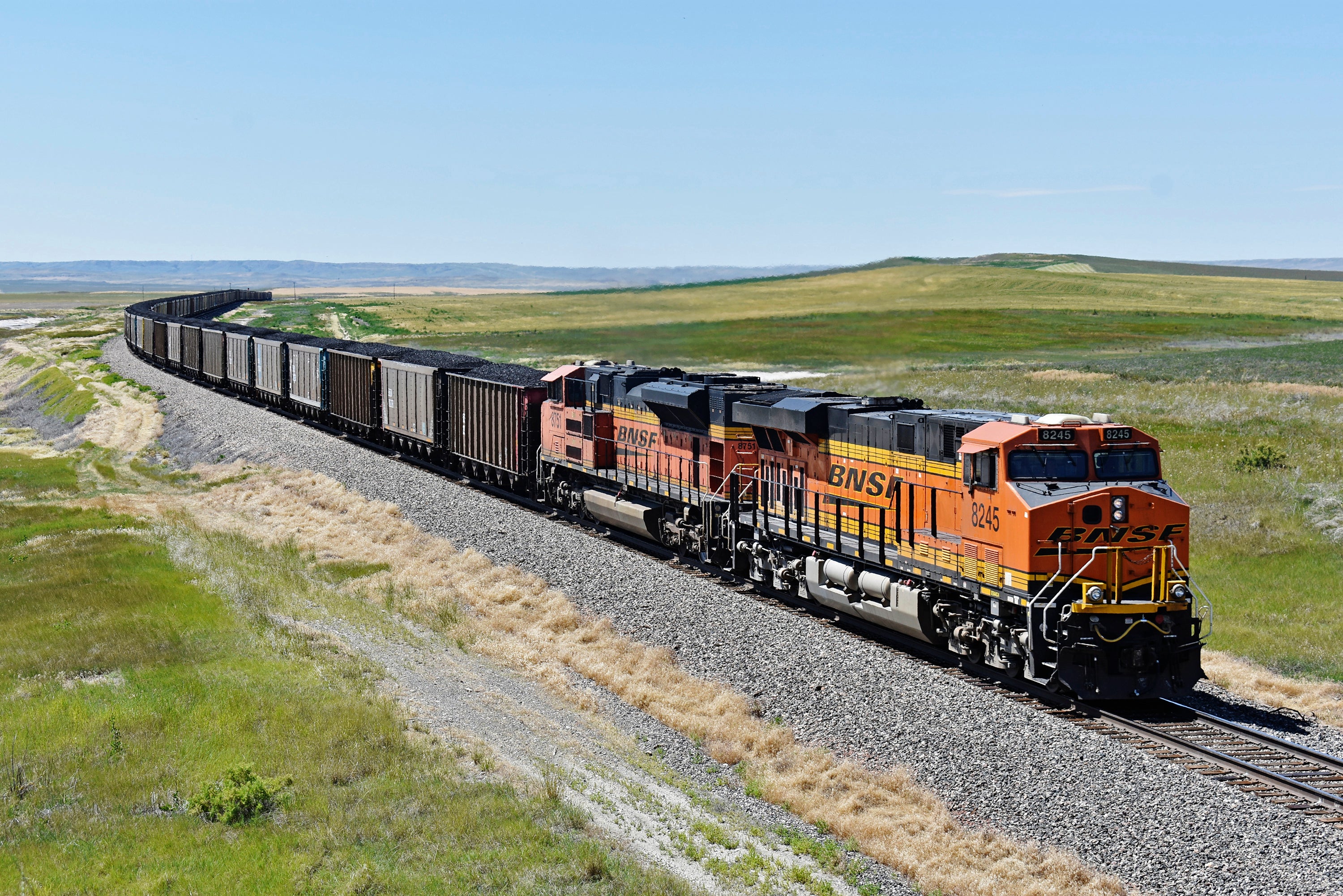Federal board sides with Navajo coal company, says BNSF Railway must ship to Canadian port
A federal board has ordered BNSF Railway to transport at least 4.2 million tons of coal from a Montana mine to a port in Canada this year

Your support helps us to tell the story
From reproductive rights to climate change to Big Tech, The Independent is on the ground when the story is developing. Whether it's investigating the financials of Elon Musk's pro-Trump PAC or producing our latest documentary, 'The A Word', which shines a light on the American women fighting for reproductive rights, we know how important it is to parse out the facts from the messaging.
At such a critical moment in US history, we need reporters on the ground. Your donation allows us to keep sending journalists to speak to both sides of the story.
The Independent is trusted by Americans across the entire political spectrum. And unlike many other quality news outlets, we choose not to lock Americans out of our reporting and analysis with paywalls. We believe quality journalism should be available to everyone, paid for by those who can afford it.
Your support makes all the difference.A federal board has sided with one of the largest coal producers in the United States in a contract dispute with a major freight railroad, ordering BNSF Railway to transport at least 4.2 million tons of coal this year for overseas use.
The U.S. Surface Transportation Board’s 3-2 order last week said BNSF has the ability to fulfill the contract and still meet the needs of other shippers.
The Navajo Transitional Energy Co. sought the order in April. The company had filed a lawsuit late last year saying that major shortcomings in BNSF service cost it $150 million in lost revenue this year and another $15 million in charges when coal wasn’t loaded in a timely manner onto ships destined for Japan and Korea.
The transportation board said NTEC was highly likely to succeed on the merits of its claim.
“The common carrier obligation is a core tenet of the Board’s regulation of the freight railroad industry and is a pillar of the railroads’ responsibility to our country’s economy,” Chairman Martin Oberman said in a statement Friday.
The Navajo Nation-owned energy company runs three coal mines in the Powder River Basin of Montana and Wyoming and another near Farmington, New Mexico — making it the third-largest coal company in the country.
The board also said NTEC was likely to suffer damage to its reputation as a dependable coal supplier, and that the order meets the public good because NTEC plays a critical role in the Navajo Nation’s economy.
BNSF Railway and NTEC did not immediately respond to emails Tuesday seeking comment about the board's decision or the status of the coal company's lawsuit.
The board says BNSF must move 23 trains of coal per month for NTEC beginning immediately, and another six trains per month when additional trains and crew become available. The additional capacity would total 1 million tons, the board said.
Like other freight railroads, BNSF struggled to deliver products on time and handle all the shipments that companies want to move because of worker shortages coming out of the coronavirus pandemic.
One of the dissenting board members, Patrick Fuchs, said NTEC didn’t meet its contracted tonnage requirements with BNSF in 2020 and that the company then sought a contract with BNSF without tonnage requirements.
The coal company's lawsuit, filed in December in federal court in Montana, alleged the railroad breached its 2022 contract to transport 5.5 million tons of coal. According to the lawsuit, BNSF said in the spring of last year that it could commit to delivering only 3.1 million tons of coal.
BNSF has said the 2022 contract called for transporting up to 5.5 million tons but did not set a minimum guarantee, Fuchs said in his dissent.
The lawsuit also alleged BNSF favored other coal companies that ship on the railroad.